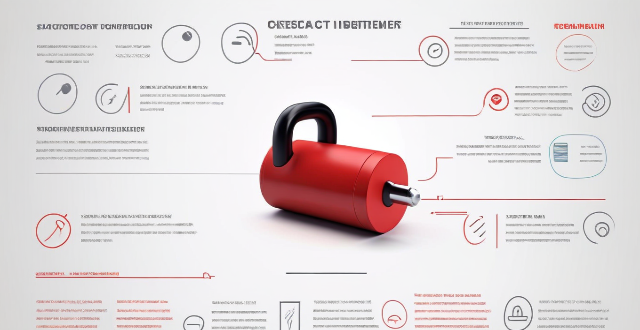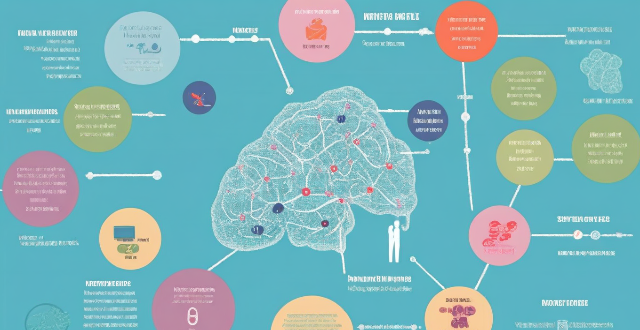Physical Function

Is there a link between physical fitness and cognitive function ?
The text discusses the potential link between physical fitness and cognitive function, citing research that suggests a correlation. It defines physical fitness as the ability to perform aspects of sports or occupations, obtained through proper nutrition, exercise, and rest, and cognitive function as mental processes involving perceiving, remembering, reasoning, problem-solving, understanding, judging, and learning. The text mentions studies that suggest enhanced physical fitness can improve cognitive function in older people without known cognitive impairment and that physical fitness could be a better predictor of cognitive performance than physical activity. It also discusses potential mechanisms behind the relationship, including increased blood flow to the brain and the release of chemicals that promote cell growth, improvement, and survival. Finally, it notes the potential implications of this research for individual and societal health.

Is there a relationship between exercise and cognitive function ?
Exercise is a potential intervention for enhancing cognitive function across the lifespan. The relationship between exercise and cognitive function is complex and multifaceted, involving various aspects of cognition and different types of exercise. Long-term exercise interventions have consistently shown positive effects on cognitive function, particularly in older adults. Different types of exercise may influence specific cognitive functions differently, and the underlying mechanisms behind these effects are still being explored. By incorporating regular physical activity into our daily routines, we can potentially enhance our cognitive function and overall well-being.

How does physical activity affect children's cognitive development ?
This article discusses the positive impacts of physical activity on children's cognitive development, including improved attention and memory, enhanced executive functioning, increased learning abilities, reduced stress and anxiety, and promoted socialization and teamwork skills. Regular exercise can enhance blood flow to the brain, strengthen neural connections in the prefrontal cortex, stimulate neurogenesis, release endorphins, and provide a healthy outlet for releasing energy and emotions. Encouraging children to engage in regular physical activity can have long-lasting positive effects on their overall well-being and success throughout life.

How does exercise improve cognitive function ?
Exercise plays a crucial role in enhancing cognitive function, including memory, attention, and problem-solving skills. It promotes brain plasticity, increases blood flow and oxygenation, reduces inflammation, and improves sleep quality. Incorporating exercise into your routine can be done through various activities such as running, swimming, or yoga. Start small and gradually increase intensity and duration, find enjoyable activities, incorporate mindful movement, make it social, set realistic goals, and consult with a professional if needed.

Does exercise have different effects on cognitive function at different ages ?
This article explores the relationship between exercise and cognitive function across various age groups. It highlights the benefits of exercise for children's cognitive development, adults' reduced risk of cognitive decline, and older adults' slowed cognitive decline. Examples of suitable exercises for each age group are provided, including playing sports for children, aerobic activities for adults, and walking or cycling for older adults. The article concludes that incorporating physical activity into daily routines at any age is crucial for maintaining cognitive health and overall well-being.

How does exercise influence neuroplasticity and cognitive function ?
Exercise has a positive impact on neuroplasticity and cognitive function by increasing blood flow, releasing growth factors, reducing inflammation, improving attention and concentration, enhancing memory, and slowing cognitive decline. Incorporating regular physical activity into your lifestyle can have numerous benefits for your brain health and overall well-being.

How does exercise affect brain function and cognitive abilities ?
This article discusses how regular physical activity positively impacts brain function and cognitive abilities by improving blood flow, boosting neurotrophic factors, enhancing plasticity, and reducing inflammation. It emphasizes the importance of incorporating exercise into one's lifestyle for maintaining and enhancing cognitive health.

Can exercise compensate for poor sleep quality in terms of cognitive function ?
The article discusses the importance of sleep for cognitive function and whether exercise can compensate for poor sleep quality. While exercise has benefits for cognitive function, it cannot fully replace the memory consolidation and emotion processing that occurs during sleep. Chronic sleep deprivation can lead to long-term changes in brain structure and function that may not be reversible through exercise alone. To maintain optimal cognitive function, both regular physical activity and good sleep habits are essential.

What role does exercise play in maintaining cognitive function in old age ?
Exercise is crucial for maintaining cognitive function in old age, with benefits including improved blood flow, reduced inflammation, and increased neuroplasticity. Aerobic exercise, resistance training, and activities like yoga and tai chi are all beneficial. Incorporating physical activity into your daily routine can help keep your mind sharp as you age.

How long after starting an exercise routine can improvements in cognitive function be expected ?
The text discusses the timeline for improvements in cognitive function after starting an exercise routine. It mentions that immediate benefits such as enhanced mood, improved attention and focus, and increased energy levels can be noticed within 1-3 months. Mid-term benefits like enhanced memory retention, improved executive function, and increased creativity can be observed within 3-6 months. Long-term benefits such as slowed cognitive decline, reduced risk of cognitive disorders, and sustained improvements in overall cognitive performance can be achieved after six months or longer. The text emphasizes the importance of maintaining a consistent exercise regimen over the long term for sustained enhancements in various aspects of cognitive function.

How does aerobic exercise impact lung capacity and function ?
Aerobic exercise can increase lung capacity and improve lung function by strengthening the muscles used for breathing, stimulating the respiratory system, and increasing gas exchange efficiency. Regular aerobic exercise can also reduce the risk of respiratory diseases, improve immune function, and reduce inflammation in the airways.

Does regular physical activity prevent burnout ?
Regular physical activity can help prevent burnout by boosting mood, reducing stress, improving sleep quality, enhancing cognitive function, and promoting social interaction. However, it should be part of a broader approach to managing stress and preventing burnout.

How does hydration affect physical activity ?
Hydration is crucial for physical activity, affecting performance, endurance, and well-being. It regulates body temperature through sweating and heat tolerance, supports energy production and recovery, lubricates joints, maintains blood volume for heart function, and ensures mental clarity. Dehydration can lead to decreased performance, impaired thermoregulation, cardiovascular strain, and reduced cognitive abilities. To maintain hydration during physical activity, strategies include pre-activity hydration, regular fluid intake during exercise, post-activity rehydration, electrolyte balance, monitoring urine color, listening to thirst signals, and avoiding diuretics.

Is there a specific duration or intensity of exercise needed to improve immune function ?
The relationship between exercise and immune function is complex, but research suggests that regular physical activity can enhance the immune system. However, both the duration and intensity of exercise play significant roles in achieving this beneficial effect. The American Heart Association recommends at least 150 minutes of moderate-intensity aerobic activity or 75 minutes of vigorous-intensity activity per week for adults. Engaging in prolonged periods of endurance exercise can temporarily suppress immune function due to increased stress on the body. Light activities like walking or yoga can still offer immune benefits by reducing stress and promoting overall health. Regular moderate to high-intensity exercises, such as jogging, cycling, or strength training, are generally considered optimal for enhancing immune function. Adequate rest and recovery are crucial for maintaining a healthy immune system. Combining different types of exercises (aerobic, strength training, flexibility work) can provide a well-rounded approach to enhancing immune function. Staying hydrated and consuming a balanced diet rich in nutrients supports both exercise performance and immune health. Other lifestyle habits, including sleep quality, stress management, and avoidance of harmful substances, also play a vital role in supporting immune function alongside exercise.

What types of physical activities are most effective in enhancing immunity ?
Regular physical activity is crucial for enhancing immunity, with various types of exercises offering specific benefits. Aerobic exercises like jogging, cycling, and swimming improve cardiovascular health, respiratory function, and overall fitness, while also reducing stress and inflammation. Resistance training, including weightlifting and yoga, builds muscle mass, promotes hormone balance, and supports gut health. High-Intensity Interval Training (HIIT) boosts metabolism and cardiovascular health. Incorporating a mix of these activities into your routine can significantly enhance immunity.

Can regular physical activity improve mental health ?
Regular physical activity can improve mental health by reducing the risk of depression and anxiety, enhancing self-esteem and cognitive function, improving sleep quality, and reducing stress. Practical recommendations for incorporating exercise into daily routines include starting small, finding enjoyable activities, setting realistic goals, making it social, incorporating strength training, staying consistent, listening to your body, and consulting with professionals.

Can regular physical activity prevent age-related diseases ?
The text discusses the potential of regular physical activity to prevent age-related diseases, highlighting its numerous benefits such as improved cardiovascular health, enhanced immune function, better bone density, reduced inflammation, and improved mental health. It further elaborates on how these benefits can specifically prevent or delay the onset of diseases like cardiovascular diseases, diabetes, osteoporosis, cancer, and dementia. The conclusion emphasizes that while regular physical activity can play a significant role in preventing age-related diseases, it should be part of a comprehensive approach to health that also includes a balanced diet, adequate sleep, and stress management.

Can physical therapy help with sports injury recovery ?
Physical therapy is beneficial for sports injury recovery, addressPhysical therapy is beneficial for sports injury recovery, address restoration, injury prevention, and addressing pain management, function restoration, injury prevention, and supporting a safe return to activity. It involves assessment, diagnosis, manual therapy, range of motion exercises, strengthening exercises, stretching, balance training, functional training, gradual increase in activity, and education on injury prevention and home exercise programs.

How does physical exercise contribute to mental well-being ?
The text discusses how physical exercise contributes to mental well-being by releasing endorphins, boosting self-esteem, improving sleep quality, facilitating social interaction, and enhancing cognitive function. Regular physical activity can lead to long-term improvements in mental health, including reduced stress, anxiety, and depression, as well as better emotional stability and overall mood. Engaging in group sports or exercise classes provides opportunities for social interaction, which is essential for mental well-being, while achieving fitness goals can boost self-esteem and self-confidence. Better sleep patterns from exercise can lead to improved cognitive function and emotional regulation, while enhanced cognition may aid in the management of mental health conditions. Incorporating regular physical activity into your routine can promote mental well-being through these various mechanisms.

What role does physical exercise play in boosting mental focus ?
Physical exercise is not only beneficial for our physical health, but it also plays a crucial role in enhancing mental focus. Here's how: 1. Release of Endorphins: Regular exercise triggers the release of endorphins, which can help reduce stress and anxiety, leading to improved mental clarity and focus. 2. Increased Blood Flow to the Brain: Engaging in physical activities increases blood flow to the brain, delivering more oxygen and nutrients. This increased blood flow can help improve cognitive function, memory, and overall mental sharpness. 3. Better Sleep Quality: Exercise has been shown to promote better sleep quality and duration. Adequate sleep is essential for maintaining mental focus and concentration throughout the day. 4. Reduction of Stress and Anxiety: Physical activity helps lower levels of the body's stress hormones, such as cortisol. By reducing stress and anxiety, exercise allows individuals to maintain a clearer mind and stay focused on tasks at hand. 5. Enhanced Self-Confidence and Mood: Regular exercise can boost self-esteem and confidence, leading to a positive outlook on life. A positive mindset contributes to better mental focus and productivity. 6. Improved Cognitive Function: Studies have found that regular physical exercise can lead to improvements in various aspects of cognitive function, including attention, memory, and executive functions. These cognitive enhancements directly contribute to increased mental focus and concentration.

What are the benefits of physical activity on brain health ?
Physical activity has numerous benefits for brain health, includingPhysical activity has numerous benefits for brain health, including risk of dementia, including improved cognitive function, reduced risk of dementia, and increased overall brain volume. Regular exercise increases blood flow to the brain, delivering nutrients and oxygen to neurons, reducing inflammation and oxidative stress, and enhancing neural plasticity through increased levels of BDNF. Additionally, physical activity improves mood, reduces symptoms of depression and anxiety, and improves sleep quality. Incorporating regular exercise into your lifestyle can help maintain a healthy mind and body.

What is the relationship between physical activity, mental health, and peace ?
The text discusses the interconnected relationship between physical activity, mental health, and peace. Regular physical activity can reduce anxiety and depression, improve mood, and enhance cognitive function, which in turn fosters emotional stability, clear thinking, and empathy - qualities necessary for maintaining peace. Sports and group activities promote teamwork, respect for others, and community building, contributing to peaceful interactions. Therefore, understanding these connections can lead to conscious choices that improve individual lives and contribute to a more peaceful world.

Can dehydration really cause muscle cramps during physical activity ?
Dehydration can lead to muscle cramps during physical activity due to loss of essential electrolytes and reduced oxygen supply to muscles. Signs of dehydration include thirst, dark urine, fatigue, dizziness, dry mouth, headache, and constipation. To prevent dehydration and muscle cramps, stay hydrated, eat a balanced diet rich in electrolytes, stretch before and after exercise, gradually increase intensity, and rest when needed.

Can you explain the function of a network switch in a home network setup ?
The article discusses the function of a network switch in a home network setup. The primary function of a network switch is to connect multiple devices together, either through Ethernet cables or wireless connections. It also manages data traffic within the network by forwarding data packets to their intended destination based on their IP address. Additionally, network switches enhance network performance by providing dedicated bandwidth to each connected device and prioritizing certain types of traffic over others. Finally, network switches come with various security features that help protect your home network from unauthorized access and cyber threats.